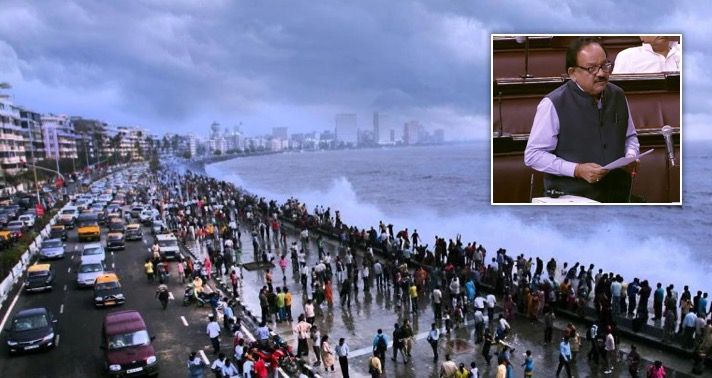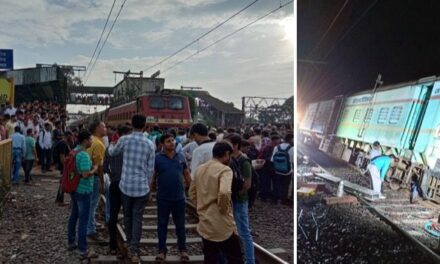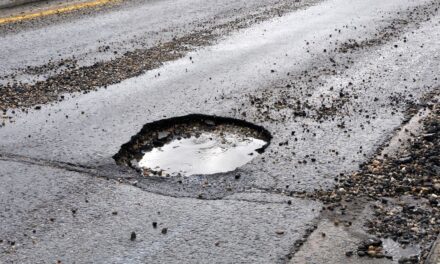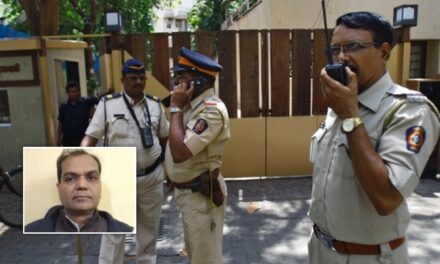Mumbai vulnerable to rising sea levels, but won’t submerge by 2050: Centre


Based on the gauge data collected from 1878-2005, the sea level at Mumbai coast will only increase by 33.3 mm from the current level in 2050, MoES Dr. Harsh Vardhan told Rajya Sabha (Main Image Courtesy: vanakamindia.com)
Despite being vulnerable to rising sea-levels, Mumbai is not at the risk of submerging by the year 2050, the government told the Rajya Sabha on Tuesday.
The clarification came in response to queries by Congress and Samajwadi Party members during the Question Hour, who cited media reports and an international study that claimed that the country’s financial capital was at the risk of submerging.
In addition to rejecting the findings of the study, Minister of Earth Sciences, Dr. Harsh Vardhan, also urged the MPs to have belief in Indian scientists and the data they are producing in this regard.
“Whatever we are saying is based on the reports of our scientists and the data produced by them are rated best in the whole world. There is no reason for you to worry about Mumbai. Mumbai is not going to be submerged,” he said in the Upper House.
The Minister said that the available data and model studies do not indicate inundation in a major part of southern Mumbai occurring at least once a year during 2040-50, as published in an international study report.
The Mumbai coast has seen around 0.74 mm average rise in sea level per year based on the tide gauge data collected from 1878-2005. Accordingly, the sea level at the Mumbai coast will increase by 33.3 mm or 3.33 cm from the current level in 2050, he said.
This has been estimated by the Indian National Centre for Ocean Information Service (INCOIS) based on the long term trends in sea-level change using data recorded by the sea level gauge of Mumbai located at Apollo Bandar, he added.
The minister even lauded the country’s scientists for their work in the field.
“This is the same country which was literally caught unawares in 2004 when we had a tsunami. Today, the data that we produce for early warnings of tsunamis is rated as number one in the world,” Vardhan said.
The Minister concluded that the coastal vulnerability maps prepared by the INCOIS based on the assessment of probable implications to the coast due to sea-level rise suggests that “Mumbai region does not come under very high vulnerable class.”













